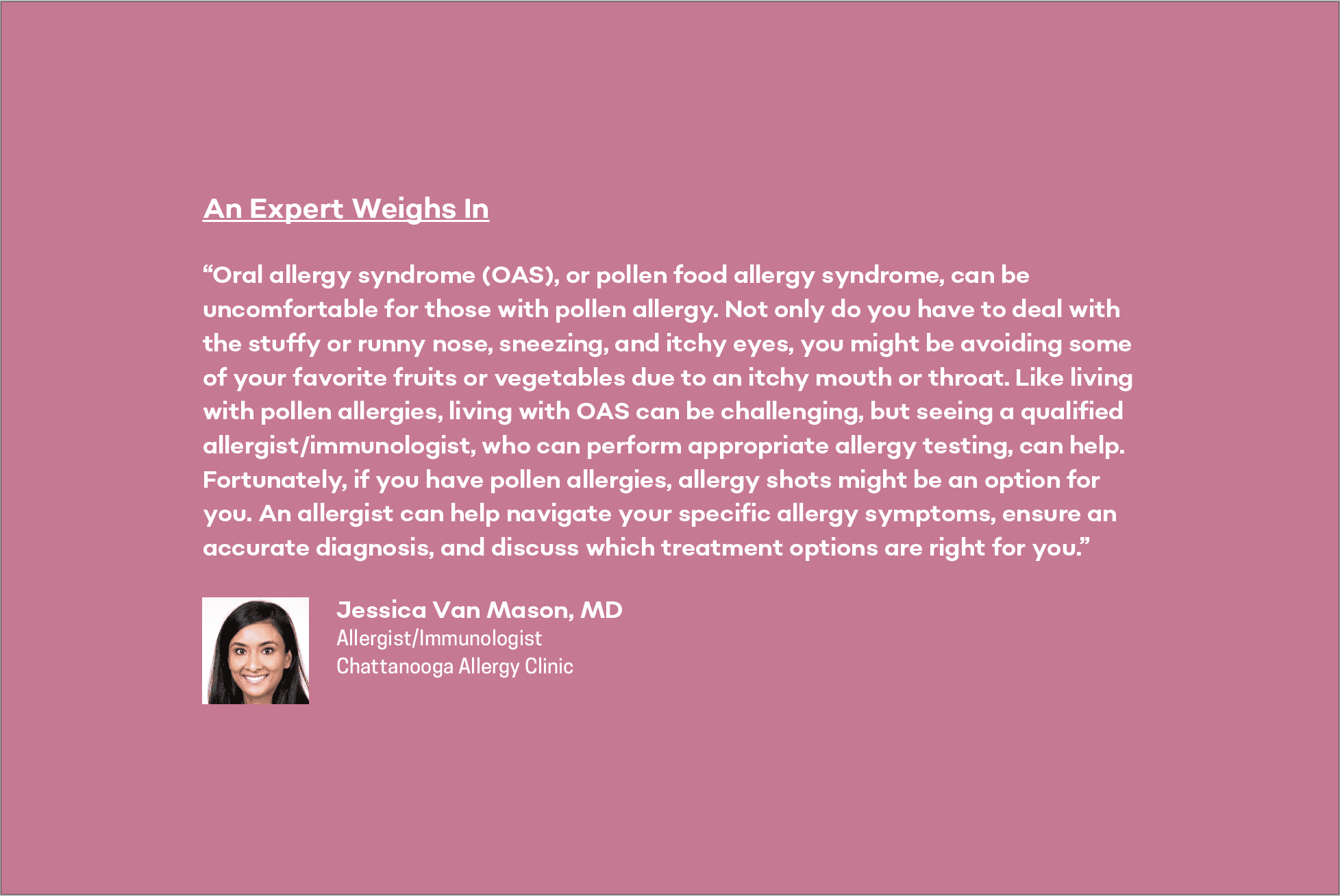Annual Women’s Health Section
Ever taken a bite of an apple and felt your mouth get itchy? You may have oral allergy syndrome.
By Lucy Morris
Understanding Oral Allergy Syndrome
Also known as pollen food allergy syndrome, oral allergy syndrome is a type of food allergy caused by a cross-reactivity of allergens seen in pollen and raw fruits, vegetables, and some types of tree nuts. Most commonly, oral allergy syndrome occurs in people who have asthma or hay fever caused by tree pollen when they eat raw fruits or vegetables.
The most common symptoms of oral allergy syndrome are itching, tingling, and swelling of the mouth, lips, and throat. Other symptoms can include irritation of the gums, eyes, or nose. Symptoms tend to be the worst when pollen levels are high, and they normally appear within minutes of eating the trigger food.
Causes of Oral Allergy Syndrome
Oral allergy syndrome is caused by an issue with the immune system. In short, when a person’s immune system can’t tell the difference between proteins in pollen and proteins in raw fruits and vegetables, it initiates an allergic response. Interestingly enough, most people who have oral allergy syndrome have no issues eating the triggering fruits or vegetables when they are cooked.
Common Trigger Foods
Not everyone with a pollen allergy experiences oral allergy syndrome when eating the following foods, but these are
common triggers:
- Birch pollen: apple, almond, carrot, celery, cherry, hazelnut, kiwi, peach, pear, plum
- Grass pollen: celery, melons, oranges, peaches, tomato
- Ragweed pollen: banana, cucumber, melons, sunflower seeds, zucchini
Diagnosis & Treatment
A person can be diagnosed with oral allergy syndrome based on their clinical history as well as skin testing with an allergist.
If it turns out you have oral allergy syndrome, the best management method is to avoid the trigger foods entirely if they cause intolerable symptoms, or to peel and cook them prior to consumption.
In rare cases, oral allergy syndrome can cause anaphylaxis, a severe allergic reaction, which can be deadly, so it’s important to speak with your doctor about the intensity and severity of your symptoms. HS


